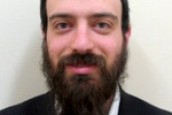Answer: In the book of Kings the Torah tells of four lepers who found themselves facing starvation outside the Jewish encampment during an enemy siege. The lepers recognized that if they took no action they would die of hunger in a relatively short period of time. Were they, however, to enter the enemy camp they might be saved or immediately executed. Figuring they had little to lose, they chose to risk entering the enemy camp (where they actually survived). The Talmud views this narrative not simply as a record of a historical event but as a scriptural sanction for assuming the risk of immediate death for the chance of long-term survival.
Based on the above the vast majority of Halachik sources permit the patient to choose the risky therapy even if the chances of prolonging life are only remote. However, when success is more likely than failure, many Rabbis encourage (not only permit) the patient to undertake the treatment. But they do emphasize that each case is unique and the approval of the local Halachik authority must always be sought.
The above ruling only applies when the healing nature of this procedure has been medically demonstrated. Surgical hazards and risky administration of drugs are only acceptable when the technique is proven to be a viable medical option. A "nothing to lose" attitude does not justify an experimental procedure.
Let's hope that the above remains just
 Rabbi Yaacov Chaiton
Rabbi Yaacov Chaiton